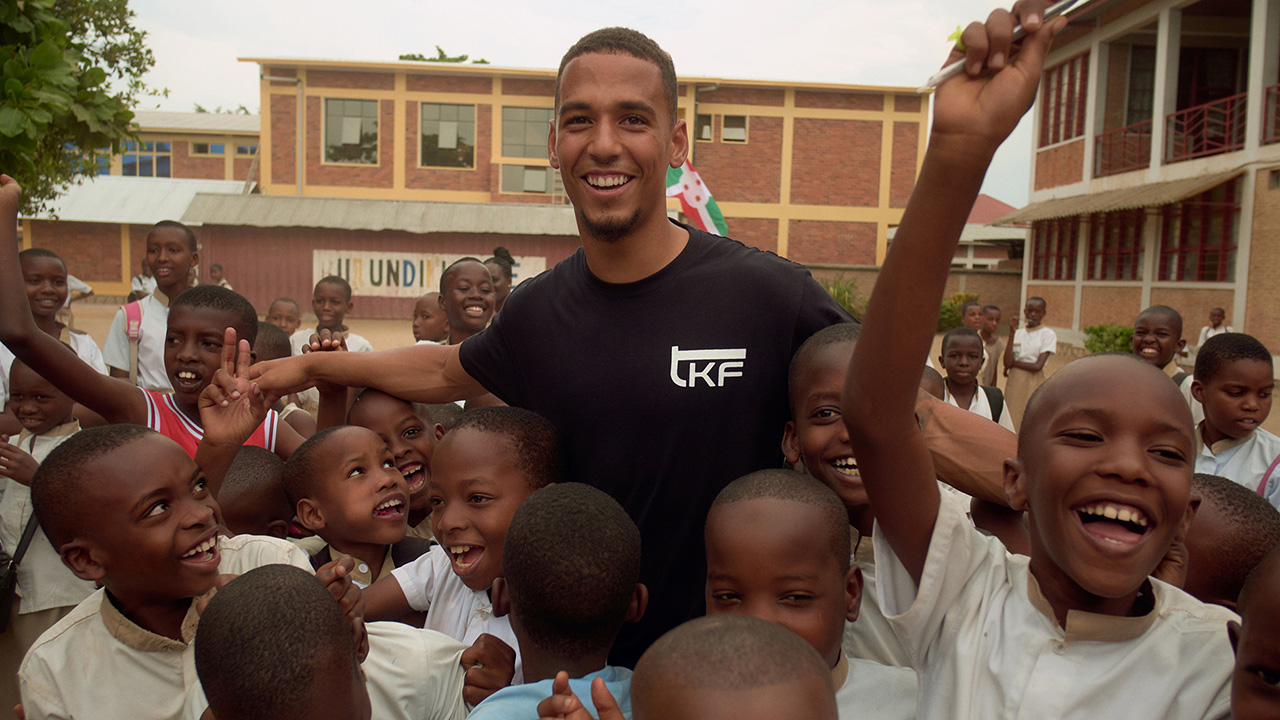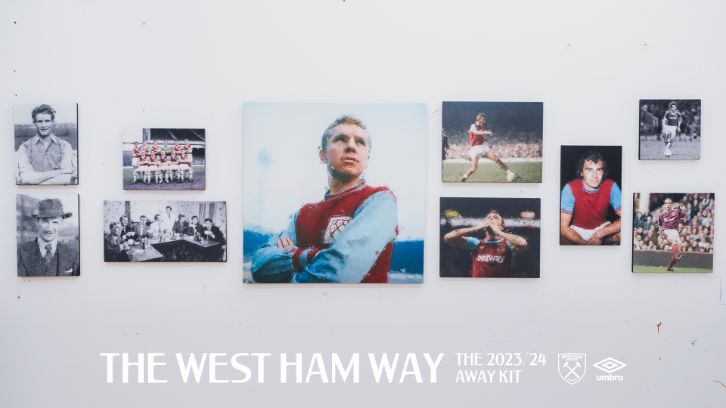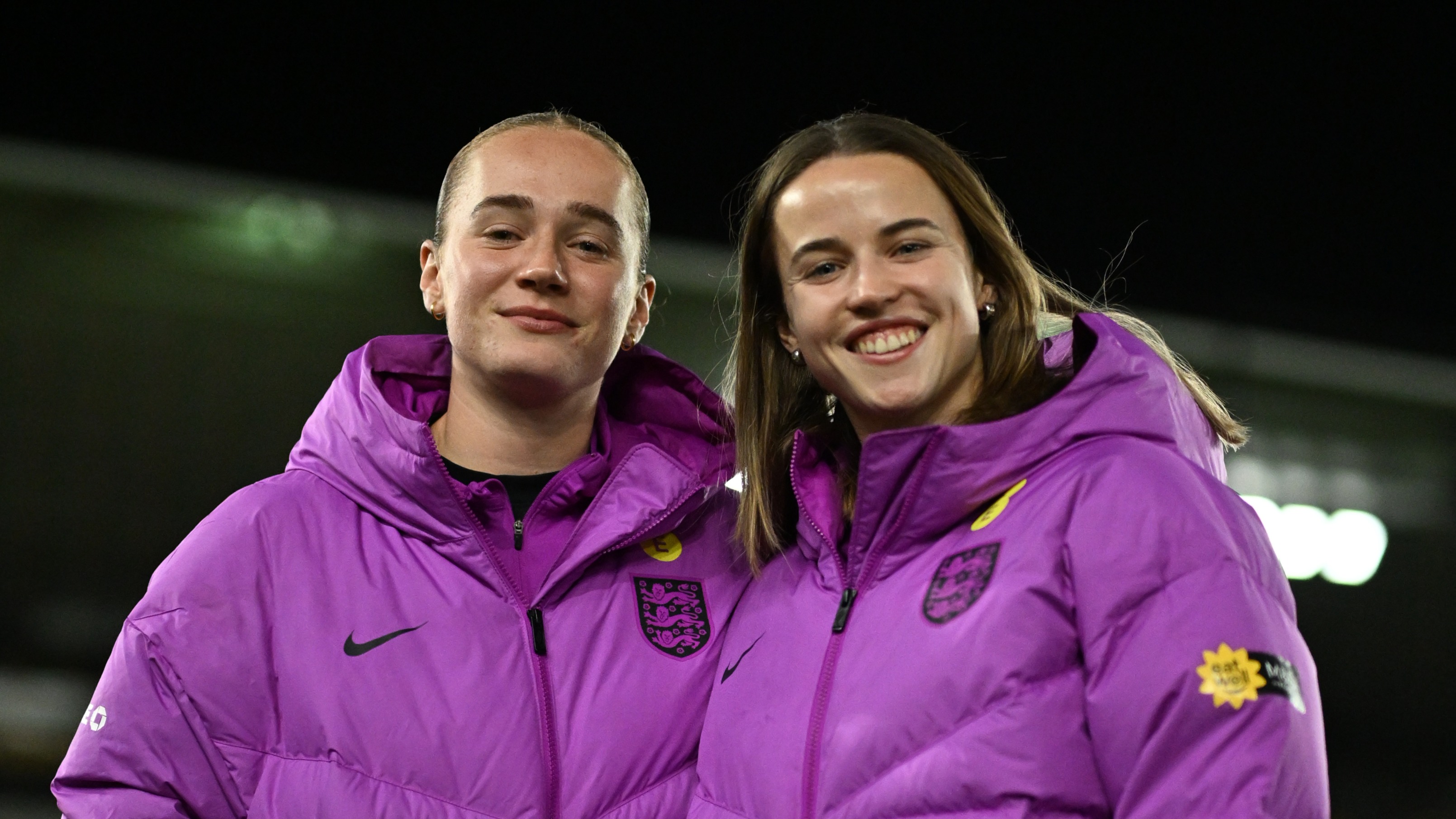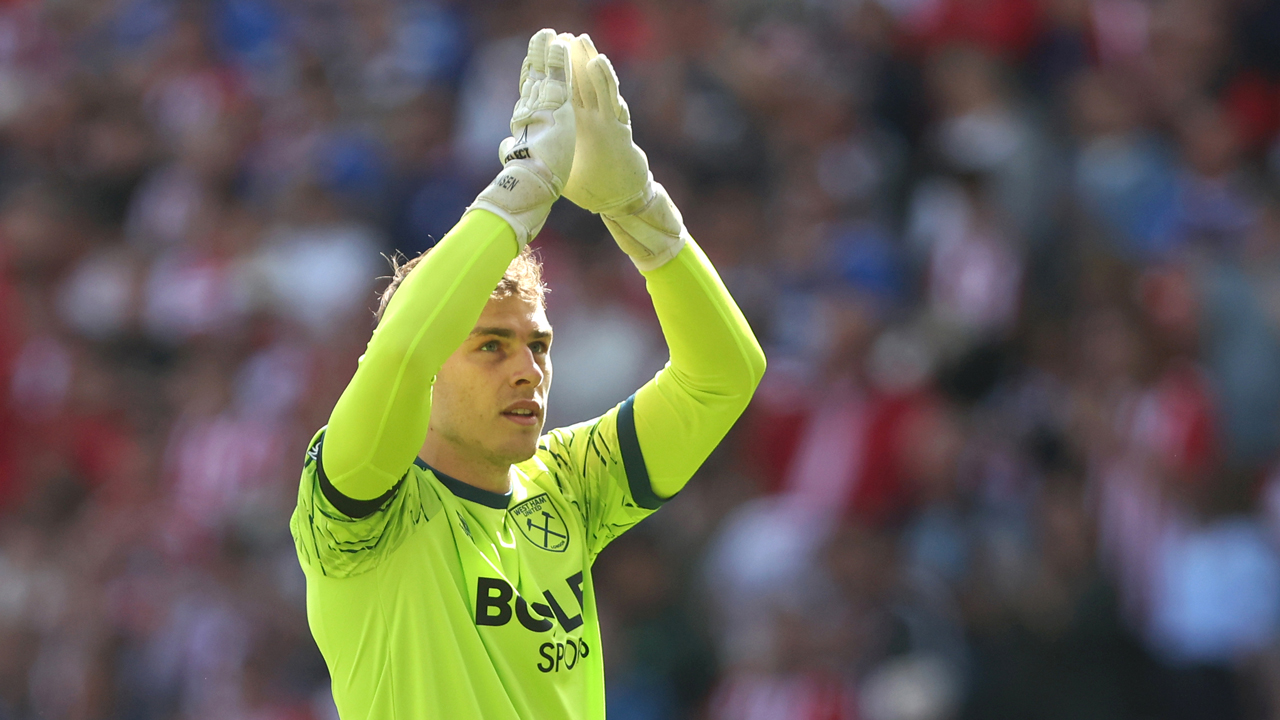Silverware, fame, and a career in professional football that many would sell their souls for. But Thilo Kehrer will never forget his heritage.
Having ended the 2022/23 season with UEFA Europa Conference League success with West Ham United and participated in international duty with Germany, nobody would have begrudged Kehrer a well-earned holiday. The chance to rest, recuperate and spend time with loved ones in an exotic location does not come along often in the increasingly hectic football schedule.
But, after leading West Ham's celebration parade through east London, Kehrer’s first stop in his summer was not a vacation. He instead returned to Burundi, the country his mother is from and where he spent his early childhood, to check on the work of the Thilo Kehrer Foundation.
A Central African nation that was ravaged by civil war for 12 years, Kehrer’s years in Burundi were spent in the midst of conflict. Even though he moved to Germany, his father’s home country, with his family as a young boy, the future international defender would always retain a desire to help influence positive change in Burundi.
Kehrer speaks with energy and passion about his Foundation’s work with people there. It is clear that the No24 takes a lot of pride in the progress being made and responds to questions regarding the Foundation with a sparkle in his eye.
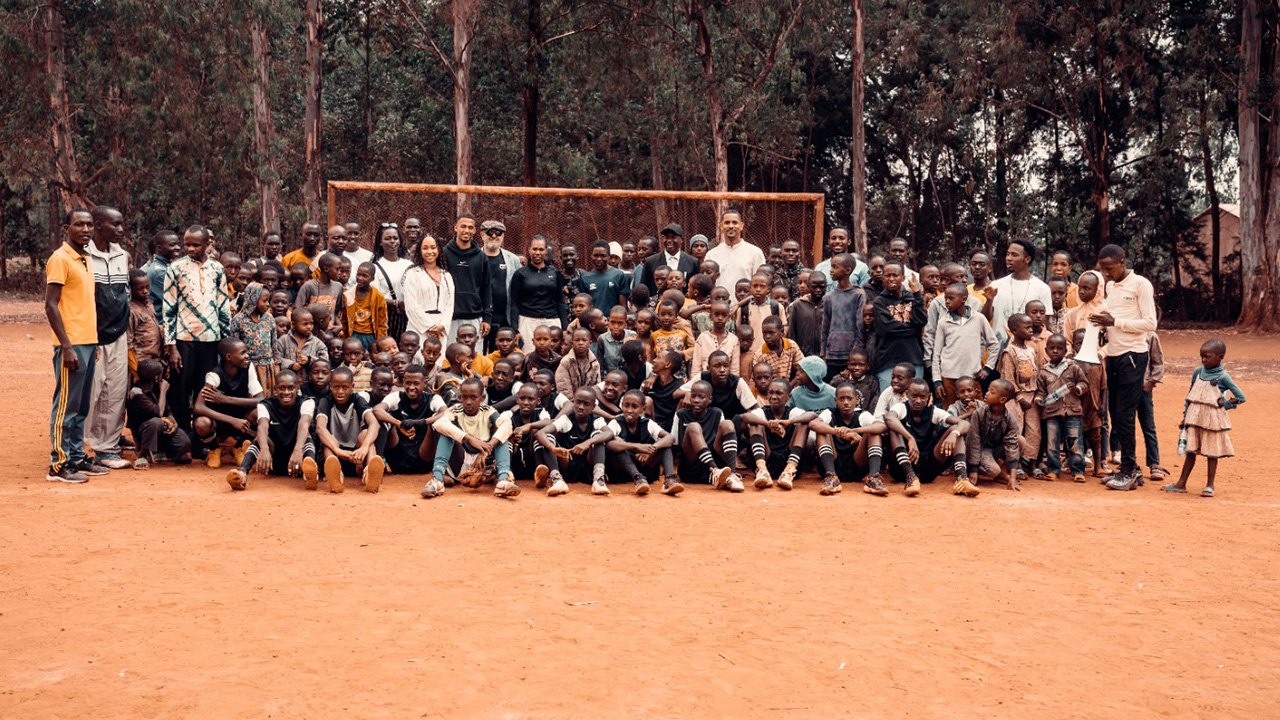
“It was an amazing summer,” the 27-year-old told whufc.com. “We had an amazing time in Prague, the international duty followed and then we had an amazing week in Burundi too, which is where the Thilo Kehrer Foundation is working.
“I try to go over to Burundi at least once a year for a few days to see how the projects are developing and where there is space for improvement, and to also discuss new ideas for how the Foundation can continue to grow.
“The Foundation is very, very important to me and going there to see the work is always personally very fulfilling. Just to see the people over there, the joy they have, and the talent and potential they all have too. Seeing them doing well makes my family, the people working in the Foundation and I very happy. We love helping the people over there to realise their dreams or develop their potential or find purpose in their work. We want to help them improve and find what makes them happy in life.”
From 1993 to 2005, Burundi was in the grasp of warfare, with hundreds of thousands losing their lives as a result of the fighting. Kehrer’s parents were, by his own recollection, evacuated to neighbouring countries on more than one occasion.
The nation is still navigating the longstanding issues stemming from that war. Burundi is statistically the poorest country in the world per GRP per capita. Concerns like poverty and illiteracy are commonplace.
But Kehrer sees so much potential, both in the country as a whole and in its young population.
“It’s true, the situation looks difficult when you look at the country from the outside,” he observed. “And there are problems, of course, but we try to look at the potential and the positive sides; things that can be positively enhanced.
“We can only control what we can control, and the Foundation has been going for a few years now and we’re really proud of the projects we’ve got going on at the moment.
“The population of Burundi is very, very young. There is a lot of potential and a lot of talent in the people of Burundi, so there are immense possibilities to improve.
“That being said, the structure in Burundi to harness that potential is still progressing, and not completely there yet, so that is where we are trying to help. We’re trying to help financially but also with our connections and our network, because we can coordinate with the government and other organisations to ensure our efforts and resources are directed to the projects that make most sense. Sometimes that can be in culture, or in sports, or perhaps in the arts. We try to help in a lot of different areas. We want to help people to help shape their own destinies and lives.”
The jewel in the Foundation’s work so far is undoubtedly the Thilo Kehrer Center, which opened in June 2022.
It is the first project that Kehrer’s Foundation has seen through to completion; one designed to help people around the Burundian capital, Gitega, grow and develop.
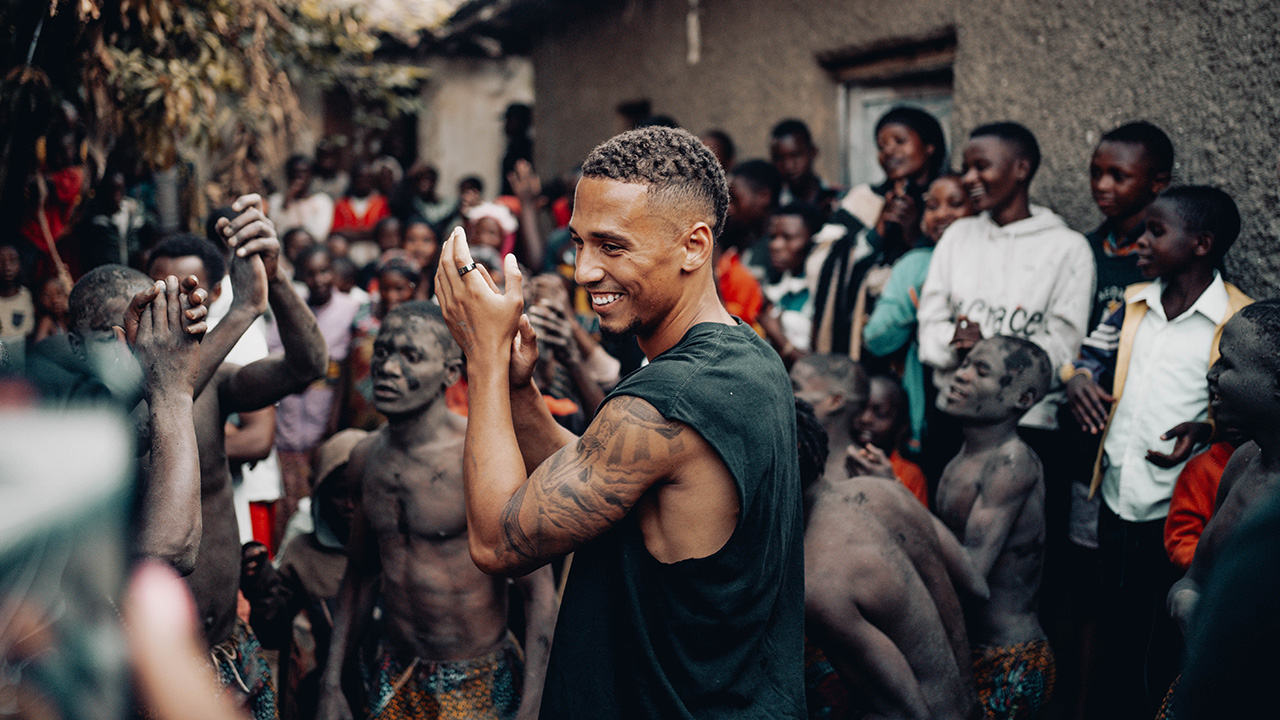
He smiled: “I’m very proud of the Center. It was the first project that we really endeavoured on in the Foundation, and it’s a place where all the things I’ve explained are taking place. We are trying to give the youth around Gitega a place to learn and grow and discover what their talents are.
“We’ve also got teams that play sports like football and basketball. We put on dancing schools and theatre classes, and we provide computer and internet access too. There is also a physical and online library for people to utilise. It is an important place for the youth to use to work on themselves when they’re not in school or not working. It allows them to learn about themselves and what makes me most happy is that it is used regularly and frequently by people. I’m very proud.”
The determination to be a positive influence in Burundi is a constant for Kehrer. It comes from his childhood, with his Burundian roots holding just as big a place in his heart as his German heritage.
The defender benefited from the opportunities available to him in Germany. He wants to make sure those same opportunities are provided to children in Burundi.
“My Mum is from Burundi. My Dad was working in Africa for many years, with different government organisations and charities where there are alliances to bring over help and materials for people. Doing that job is how he met my Mum.
“I spent the first three or four years of my life in Burundi but the key memories I have are mostly of the nature and the beautiful views over there. There are many, many hills and mountains. It’s a beautiful place. There is a huge lake on the west side of the country called Lake Tanganyika too. Those memories are refreshed every time I return as well. It’s a wonderful country.
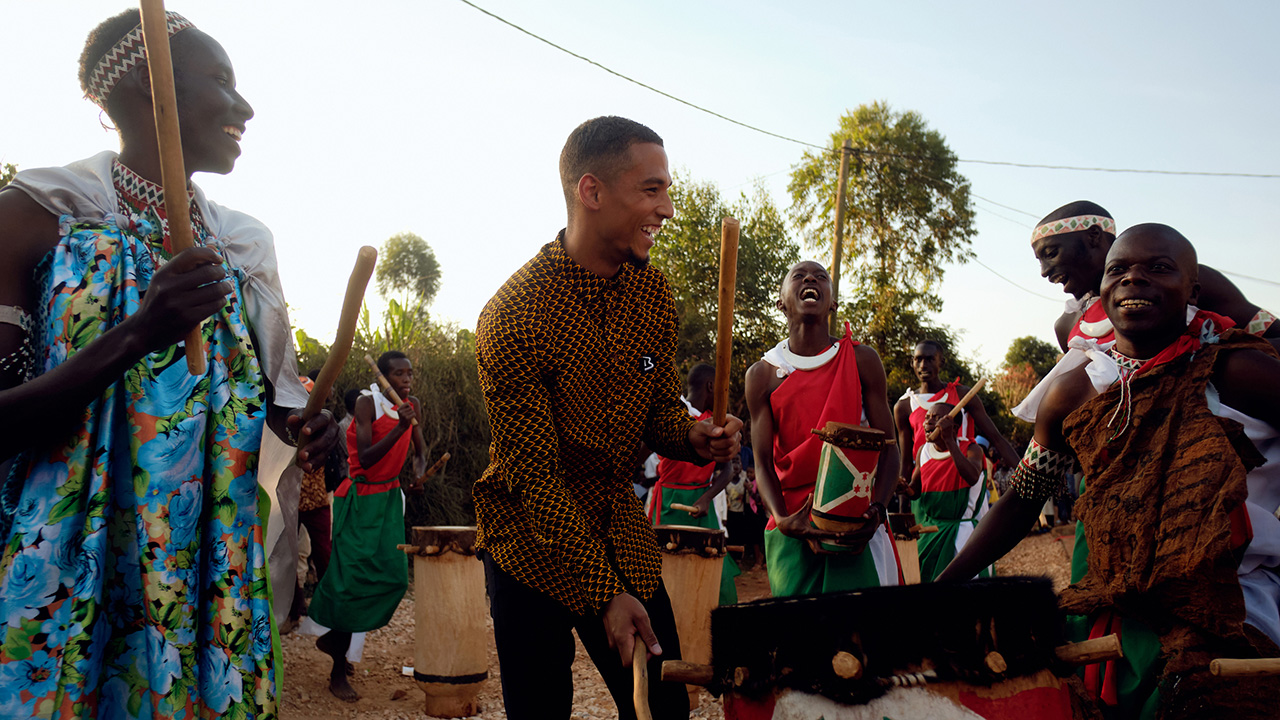
“Over the years, I always felt like I had two cultures inside of me. Obviously, I had my German culture but there was also Burundian too. It was a feeling that only got stronger as time passed.
“When I was fortunate enough to become more successful as a professional footballer, that Burundi side was always in my mind, and I felt the real desire to give something back to the people. I saw the opportunities people had in Germany, and across Europe, with things like education and sport, and those structures to provide that are not necessarily in place in Africa. But the potential and talent of the youth in Burundi is certainly there. Because of that, I really wanted to give something back to the place where I come from.”
And so, while Kehrer lives his dream of being a professional footballer, playing in the Premier League, his mind is never far away from Burundi and the work of the Thilo Kehrer Foundation.
Kehrer’s fundamentals – his patience, his respect, his attention to detail and his punctuality – are all virtues cultivated in Burundi. His upbringing, and the attributes taught to him by his parents, have made him the man he is today. He will never forget that.
“I’ve taken a lot from my experiences from my youth from both Burundi and Germany,” he concluded. “I’ve taken a lot of those fundamentals and those virtues from where I’ve grown up.
“The people in Burundi are some of the most respectful people in the world. Even given the circumstances they are living in, it is a population of people that is very respectful and puts a lot of importance in rituals, such as the ways of greeting people.
“My parents and my family have played a big role in the person I am too, and combine that with my heritage, I think that is what makes me the person I am today.”
